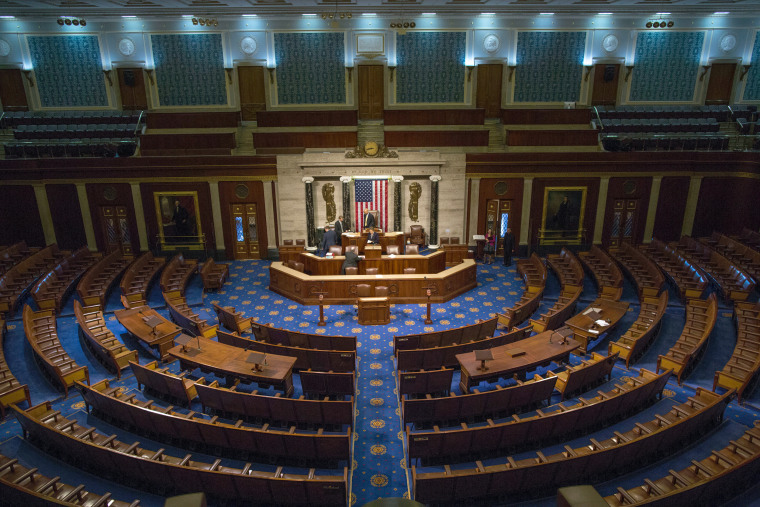The Supreme Court wrestled Tuesday with a dispute over whether Arizona's state legislative districts were redrawn in a way that illegally shifted voters to give Democrats an advantage.
The justices heard a challenge from a group of Republican voters who claim Arizona's Independent Redistricting Commission violated the principle of "one person, one vote" when it redrew some districts to include more residents than others.
Conservative justices asked tough questions of both sides, while more liberal members said slight differences in population — less than 10 percent — were not enough to violate the Constitution's equal-protection clause.
At issue is whether minor population differences among districts are acceptable if they were done for partisan advantage or to comply with a now-defunct provision in the Voting Rights Act.
Justice Antonin Scalia suggested it would be tough to show any misconduct if the commissioners thought their actions were done to meet the Voting Rights Act.
Related: Supreme Court OKs Independent Commissions Drawing Districts
"That doesn't show a bad motive on their part, does it?" Scalia asked Mark Hearne, a lawyer representing the challengers.
Justice Anthony Kennedy seemed to agree, telling Hearne that if the commission had a good faith belief its actions were proper, "then you have a problem."
Hearne said any action based on partisan ideology means there was "an illegitimate purpose," even though a lower court found that the predominant motive was trying to get the plan cleared by the Justice Department.
Justice Ruth Bader Ginsburg said the end result was that the plan actually gave Republicans more than their proportional share of seats in the state legislature.
"If there was an attempt to stack this in favor of Democrats, it certainly failed," she said.
Hearne said an "incompetent gerrymander" is no better than one that worked.
Ginsburg later pressed Arizona Attorney General Mark Brnovich on the issue, but Brnovich said it was "irrelevant." He said the "intentional and systematic" manipulation of voting districts is what undermines the principle of one person, one vote.
The high court ruled in a 1964 case that the principle requires a state's legislative districts to have roughly equal numbers of people. But those numbers don't have to be exact. Differences of less than 10 percent are presumed constitutional unless challengers can show they are the result of discrimination or other invalid reasons.
The average population difference in Arizona's redrawn districts is 2.2 percent, with a maximum of 8.8 percent. The plan placed more GOP voters in some Republican-leaning districts, but left other districts with smaller overall populations. Those districts have heavier concentrations of Hispanic voters and are considered more likely to elect Democrats.
A panel of federal judges ruled those differences were legal because the commission mainly was trying to win Justice Department approval for the new map under the Voting Rights Act. The lower court also found the commission did not violate the Constitution's equal-protection clause even though it appeared that some commission members were trying to "improve Democratic prospects in the affected districts."
But a year after the Arizona districts won approval, the Supreme Court largely ended the Justice Department's role of giving advance approval to redistricting plans in Arizona and other states with a history of discrimination against black or Hispanic populations.
Voters created the five-member commission in 2000 to take the politically charged once-a-decade job of drawing new maps out of the hands of the Legislature. Two members are Democrats, two are Republicans and one is independent.
Arguing for the commission, lawyer Paul Smith said that only two of the five commissioners were found to have acted with a political purpose and that was only with respect to a single district.
Kennedy wondered how much political purpose was acceptable. He asked Smith if it was all right to use any illegal standard in the redistricting process as long as it was minimal.
Smith said if the predominant motive was complying with the Voting Rights Act, then it was a legitimate policy.
Chief Justice John Roberts wondered what if the requirements that the Justice Department asks for go too far.
"I'm trying to find out if the Justice Department's procedures can trump the requirements of the Constitution," Roberts said.
A brief submitted by several former Justice Department officials warned that a ruling against the Arizona commission could throw out more than 1,000 other redistricting plans around the country.
A decision in Harris v. Arizona Independent Redistricting Commission is expected by late June.
